Expensive Pineapples & Edgar Allan Poe Collaborates with Claude Debussy
The history of pineapples, a chronicle, and a collaboration between Edgar Allan Poe and the composer Claude Debussy.
In this week’s newsletter: the history of pineapples, a chronicle, and a collaboration between Edgar Allan Poe and the composer Claude Debussy, and later Manet.
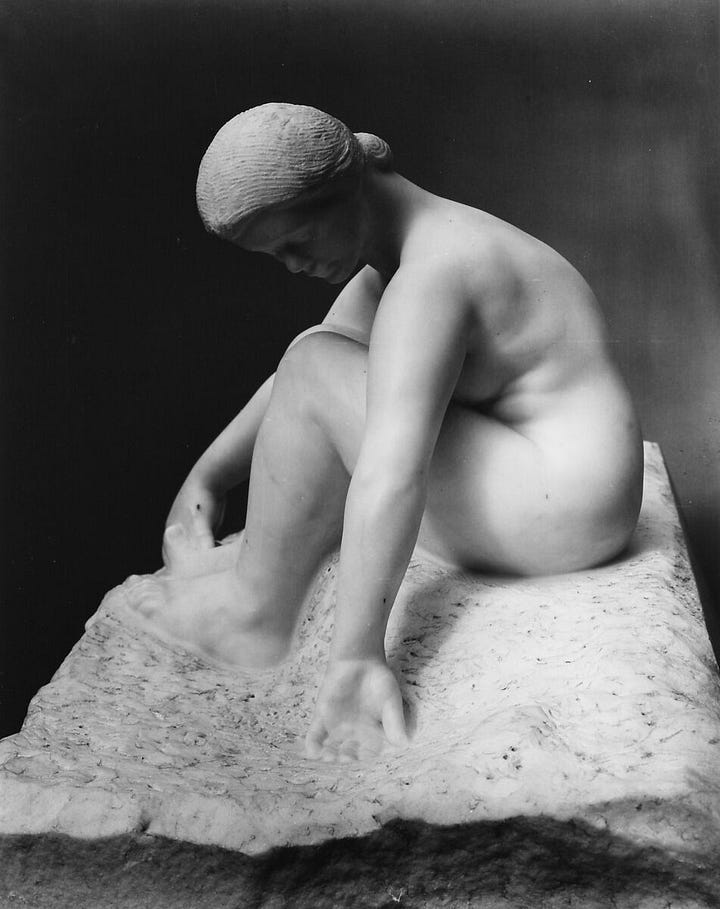
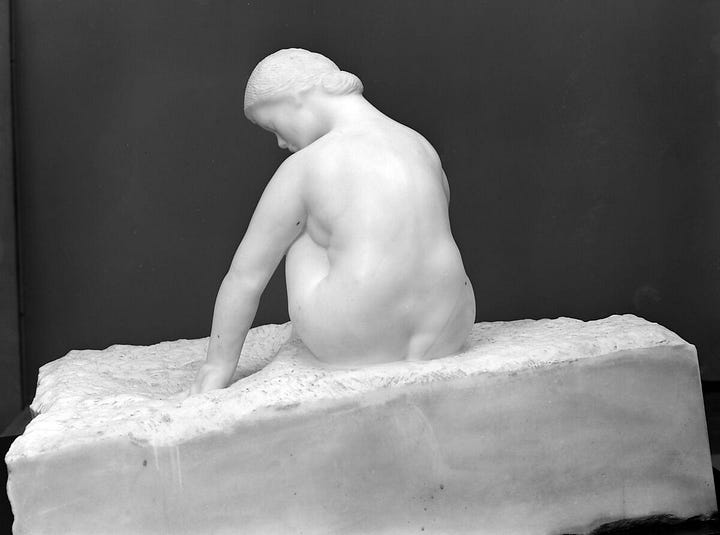
Summertime Ghosts: A Chronicle
by Renata Mosci Sanfourche
There are ghosts that haunt me, ghosts from people who are still alive. They visit me at daybreak and at dusk, at night they hold me down. The night hag terrifies me, she keeps me bound to my bed, when I open my eyes she’s there. At dawn I move through my rooms; I place this in the right drawer and that on the left shelf, nothing moves forward with surprise. The days have become paralyzed. I don’t feel my hands. I don’t feel my torso, my legs. I am entirely possessed by the ghosts of these people who are still alive. What will happen when they die?
The houses I lived in were sealed in white voile curtains. The windows were kept shut and only a sliver of light shined inside. The wind seeped through these windows as freely as it flows through a sand castle. She carried me to the patio where I sunbathed each morning. I fell and the muffled thud sunk, I cried and I was quieted. I can hear my sob shrinking into ripples, soft small wrinkles opening on the shore.
Not all homes built of sand disappear. The water seeps through the towers, melts the sand, but the imprint, the memory, dense and rigid, will never seize to exist. From a cliff I plunge into the sea, into a dull roar where there is no human life, and when my hands, my arms, my head pierce through its waves back into fresh air, I’m still here. My body floats to the top and into comfort, it finds solace in the sea.
Blue waves, green waves, they can’t exist without that breeze, even the fish in mid-stream need to breathe. From the room I hear a bird sing, and then another bird, and another bird, they sing different, they sing random, but their song travels through the trees. And when the gardener turns on the string trimmer, they blow away towards the blue sky and their chorus falls broken, buried. I now see the beaches where big waves crash, I see windows open without curtains and hardwood floors flooded with wet leaves and rain. I see a woman standing, her child breathing, but she is haunted by the ghosts of these people who are still alive.
I was twenty-three that summer and entirely selfish. The sand, the nudity, the salty air were a place to manifest something impulsive, a disinhibition. We spent hours on the sand, frying in the sun, our skin bubbling without sunscreen, until the sea would call out to us. The water was warm. I would sit on the shore and watch the small waves ebb and flow on my legs while I dug my hands into the ground and dribbled wet sand drops on my blonde thigh hair. You liked to lay on the stretcher, comb your long hair, brush the sand off your toes and order drinks.
When I walked back to the chair I was looking at you. You were looking at the girls sitting next to us. Looking at summer. I feel connected to strangers when I’m at the beach. I like to listen to them. I begin to feel the drinks you ordered, and I think about you. To tell the truth I’m happy you’re often misunderstood, that people can’t get past you. It means the best part of you is only for me, for our time together. I can read you. The night before you told me about your past, about all the secret ways you find to squash this past, I admire your courage.
I have the urge to do something now that we’re drunk. We go swim in the water and we meet an older man that’s staying at our hotel. He liked you. I looked up at the sky and the sun was going down and I told you I was cold. Really I wanted to be alone for a while. I swam out into the sea, far, very far, all the way past the buoys. I couldn’t stop. When I looked forward the sun was melting into the sea. There was no one between us and I thought if I kept going I’d finally arrive somewhere. I didn’t think about the boats, about the animals, about the danger, I lay there floating in the middle of the sea. I was looking at you now, you were so far away and so worried. You sent the older man to swim after me.
We were together the first time I snorkelled. We were on a small boat with a bald man that had just left prison. I woke up that night scared someone was coming for us, you were awake and you hugged me. The reserve the boat docked on was vast and you were addicted to swimming over the reefs. You spent hours looking at the turtles. I had a panic attack and you held my hand back to the boat. If it wasn’t for you I would have drowned. I have pictures of you eating mangos off the trees, orange fibers stuck between your teeth.
“The Fall of the House of Usher” written by Edgar Allan Poe
click on the image below to access the full story.
“And thus, as a closer and still closer intimacy admitted me more unreservedly into the recesses of his spirit, the more bitterly did I perceive the futility of all attempt at cheering a mind from which darkness, as if an inherent positive quality, poured forth upon all objects of the moral and physical universe, in one unceasing radiation of gloom.”
“The result was discoverable, he added, in that silent yet importunate and terrible influence which for centuries had moulded the destinies of his family, and which made him what I now saw him—what he was.”
“An irrepressible tremor gradually pervaded my frame; and, at length, there sat upon my very heart an incubus of utterly causeless alarm.”
Claude Debussy & Edgar Allan Poe
It was Charles Baudelaire who translated many Edgar Allan Poe stories and poems into French. In the early 1900s, Claude Debussy started writing an opera based on “The Fall of the House of Usher” and “The Devil in the Belfry” which he would never finish, the former coming closer to completion. You can listen to Georges Prêtre’s realization of Debussy’s opera below:
Many French writers and poets were inspired by Poe’s work, including Stéphane Mallarmé who considered the poet one of his masters and learned English only to better read Poe’s work. In the late 19th century, Mallarmé translated many of Poe’s works into French collaborating with Édouard Manet on the illustrations. Because Mallarmé translated Poe’s verse into prose he decided it was important to integrate visuals into the work; the decision was accompanied by intertextual references to Poe’s first translator Baudelaire.
One of the original Mallarmé translations of the poem “The Raven” into “Le Corbeau” published by Richard Lesclide in 1875, was sold at auction by Christie’s in 2022 for 56,700 euros, and by Artcurial in 2018 for 50,550 euros. Below are some of the book’s images featured during the Artcurial sale:
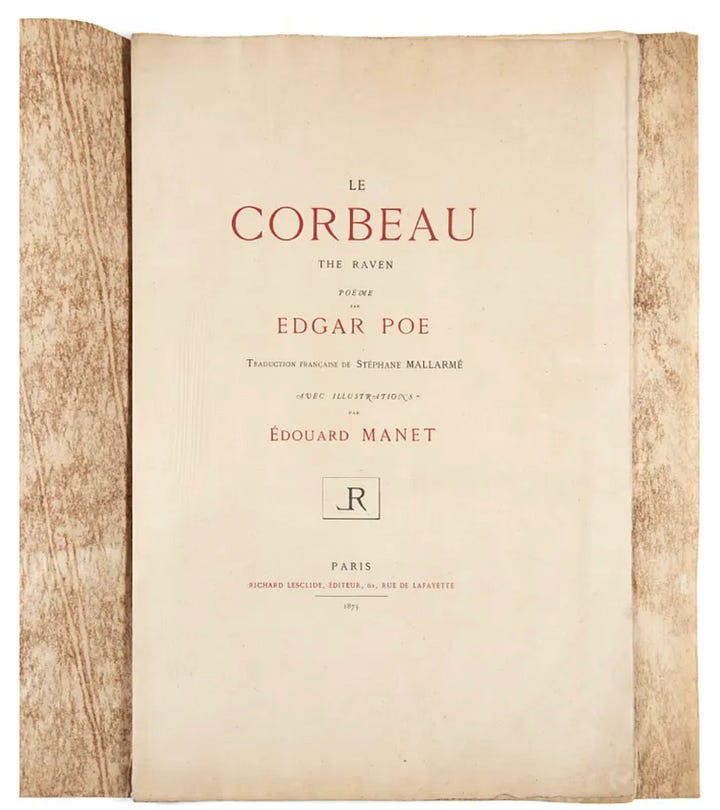
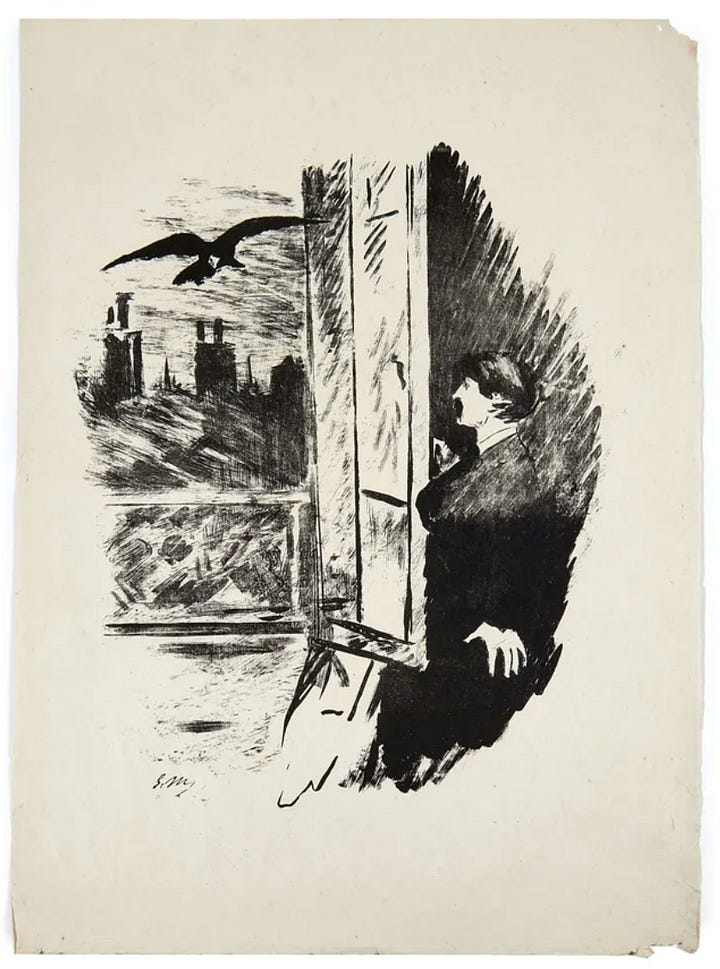
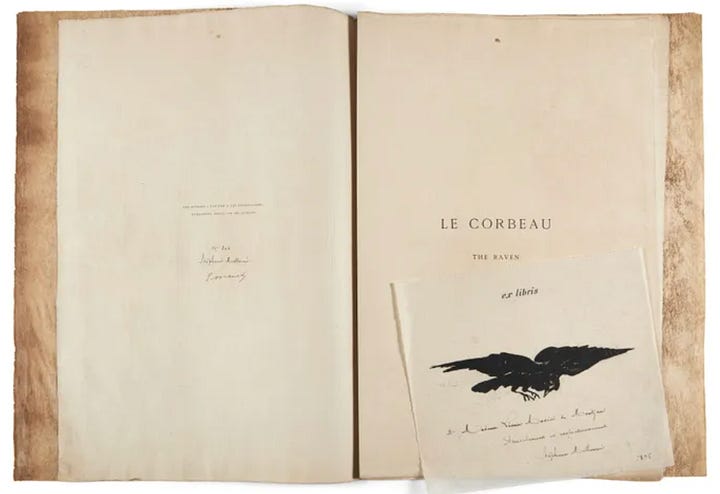
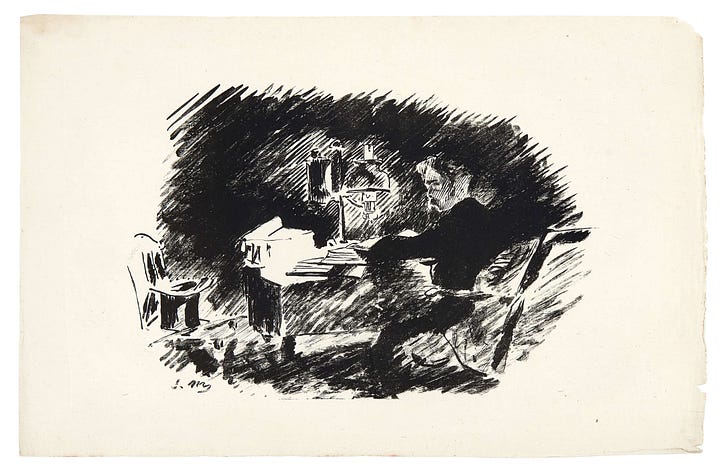
A Note on Pineapples
by Renata Mosci Sanfourche
The first known illustration of a pineapple was sketched by Gonzalo Fernández de Oviedo y Valdés sometime in the sixteenth century. He had a butt chin. He was lying on a hammock looking at the bromeliads when he drew it. I’m not certain if he ate the pineapple after. Christopher Columbus was still the first white man to see the pineapple. It happened one century before in Guadeloupe in the West Indies. Please note Christopher Columbus did not invent the pineapple. The Portuguese royal court also did not invent the pineapple. The Portuguese royal court, after Pedro Álvares Cabral arrived in Brazil instead of India by accident, imported pineapples from the West Indies to Spain, and from Spain to Portugal. When the royal family moved to Brazil two centuries later they brought pineapples with them. They also brought the royal court. Pineapples are not from Brazil. The Portuguese royal family was also not from Brazil. They ran from Napoleon to Brazil. At Lisbon’s port the Portuguese Royal Family forgot sixty thousand books from the National Library. Someone found the crates swimming in mud. Also found covered in mud at Lisbon’s port were several boxes with silver treasures. The Royal Family did not forget their wigs. Mademoiselle Carlota Joaquina of Spain, the future Queen of Portugal after Queen Maria I died, had many wigs. She threw all her wigs overboard. She sat on a wet bench scratching her head throwing her wigs overboard. A legion of lice also thrown overboard. Queen Maria I was possessed by other legions. Legions of demons. Red demons. The brown comes after the horse. The legions could be from Brazil. Mademoiselle Carlota Joaquina arrived in the port of Salvador bald without wigs.
People buy pineapples in France.
In 18th century England a pineapple cost £60. Today’s equivalent: £11,000.
A Visual Library
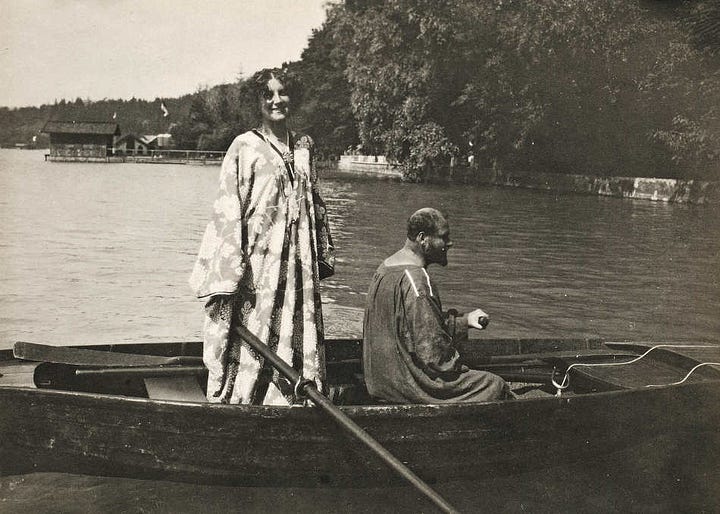
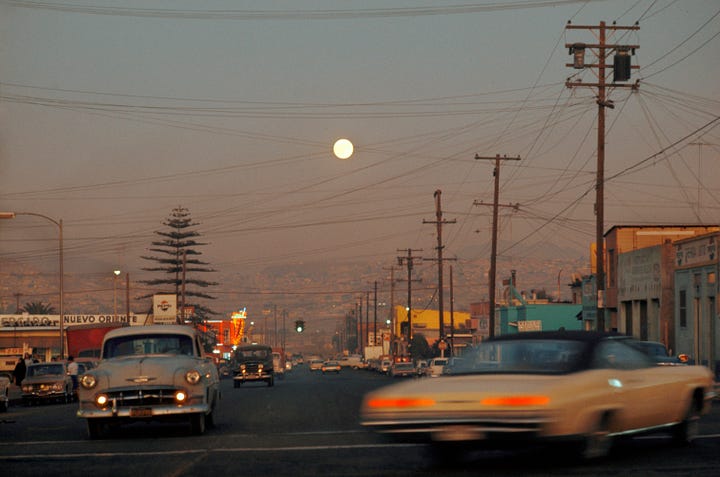
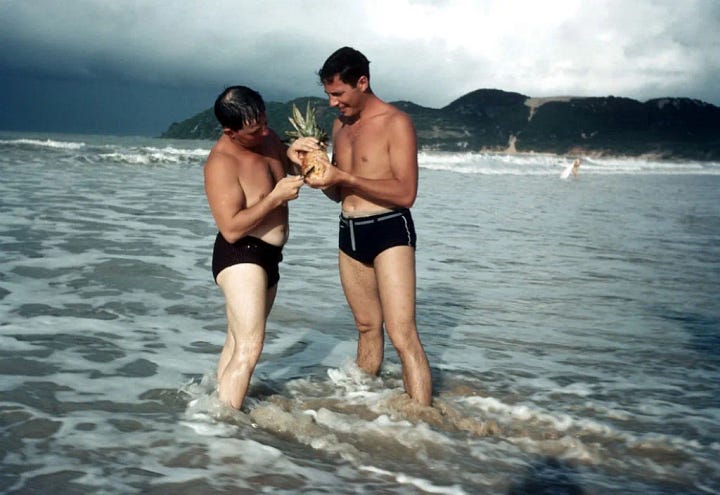

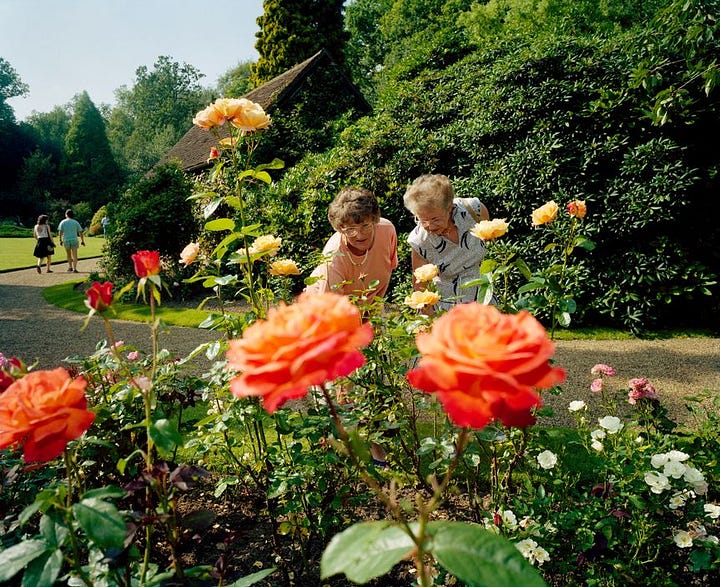
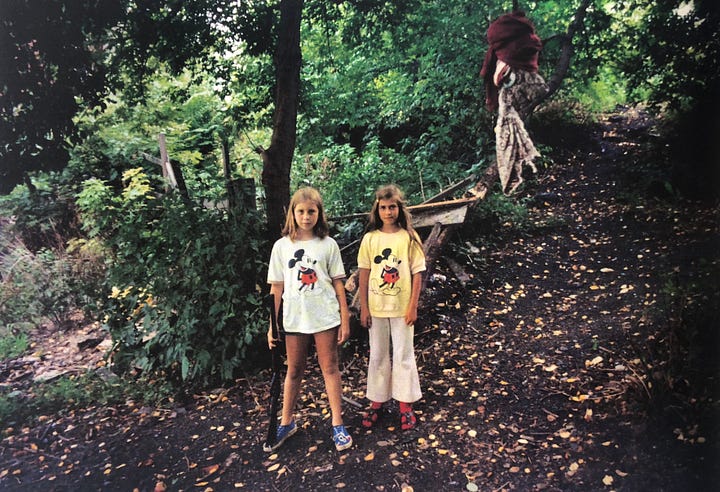
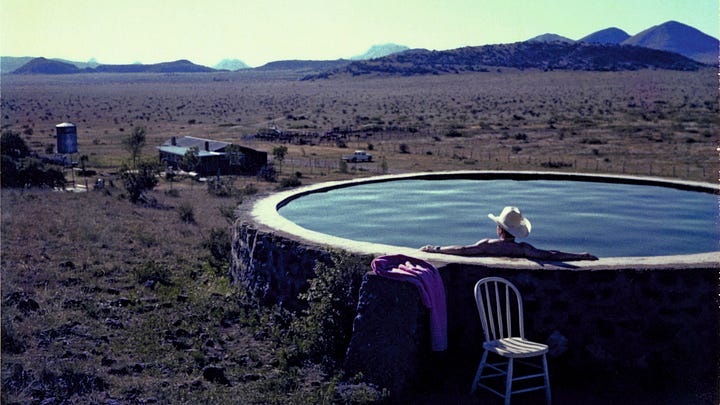

Currently at Rue de Chabrol
What my husband is listening to:
What my daughter is into:
Making lists with all the names of her friends, everyone she’s going to invite to her birthday party in June. Last year she only invited girls, this year I’m starting to see some boys crawling onto the list. She makes a fresh list every day at school with pink and purple markers. I realized it was a trend when I caught three of them making their own birthday lists right before school pick-up. Too cute not to share with you.
A film I’m thinking about:
A Geisha by Kenji Mizoguchi
A Poem
Sonnet 104
by William Shakespeare
To me, fair friend, you never can be old,
For as you were when first your eye I eyed,
Such seems your beauty still. Three winters cold,
Have from the forests shook three summers’ pride,
Three beauteous springs to yellow autumn turned,
In process of the seasons have I seen,
Three April perfumes in three hot Junes burned,
Since first I saw you fresh, which yet are green.
Ah! yet doth beauty like a dial-hand,
Steal from his figure, and no pace perceived;
So your sweet hue, which methinks still doth stand,
Hath motion, and mine eye may be deceived:
For fear of which, hear this thou age unbred:
Ere you were born was beauty’s summer dead.
FYI: the holding image for this post features work by French artist August Rodin.



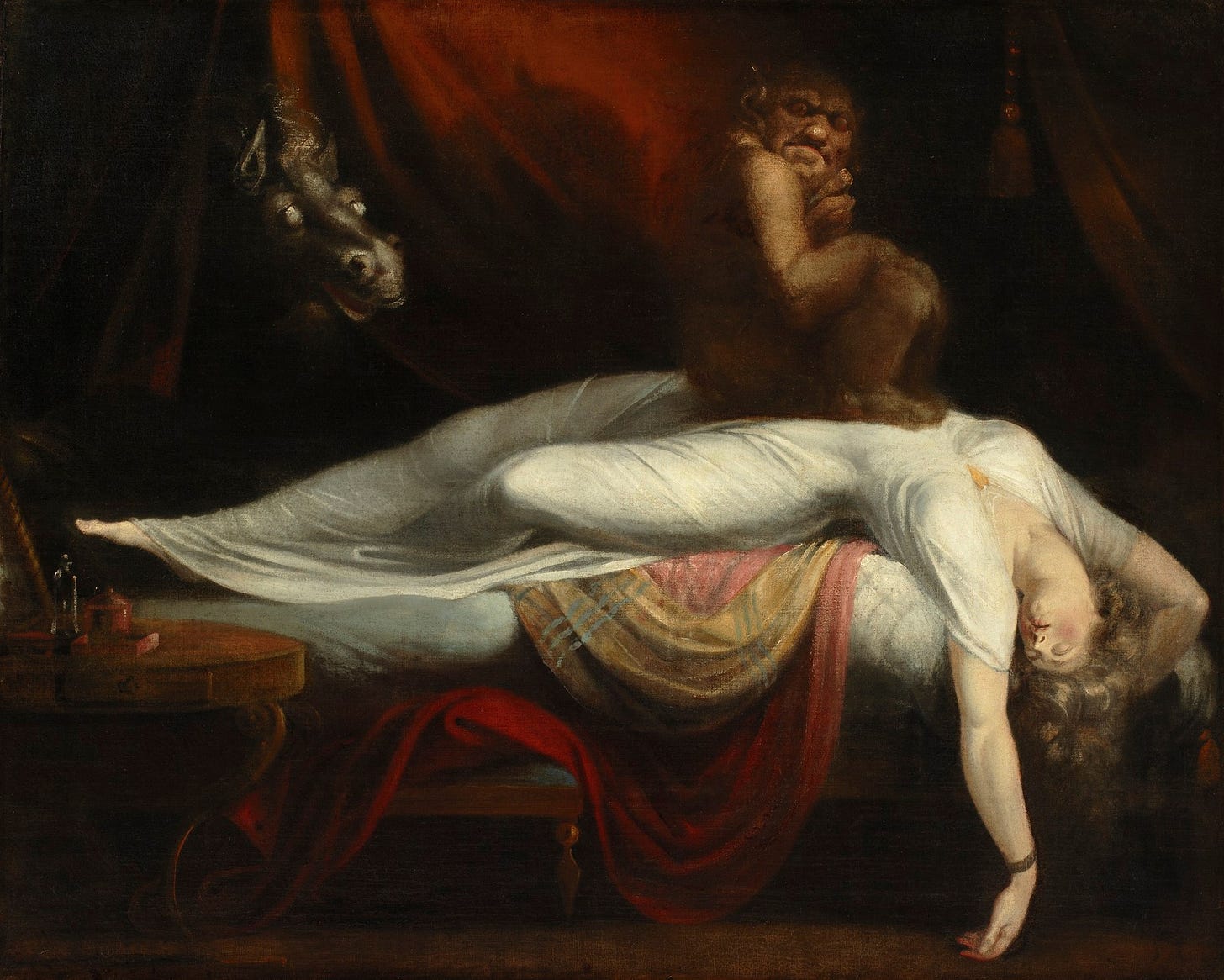
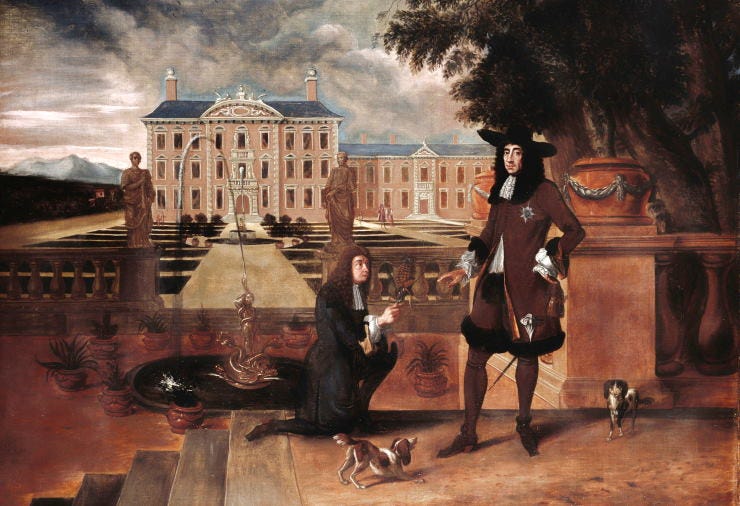

Beautifully written.